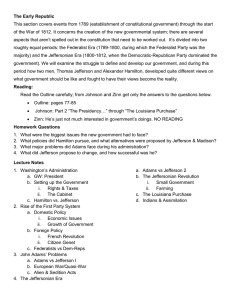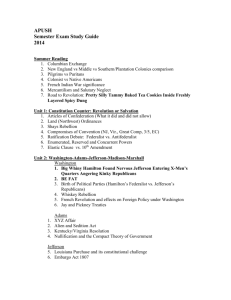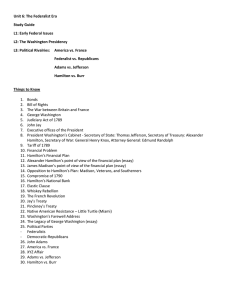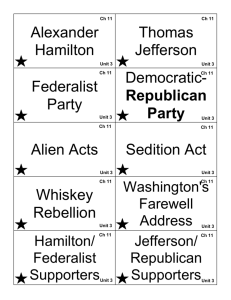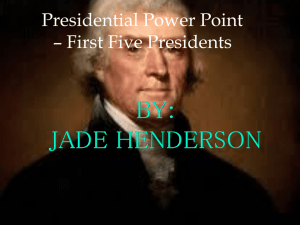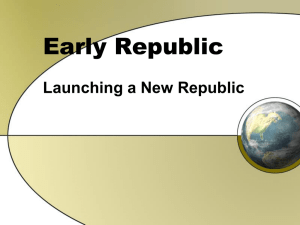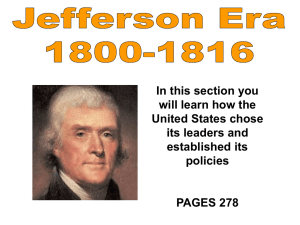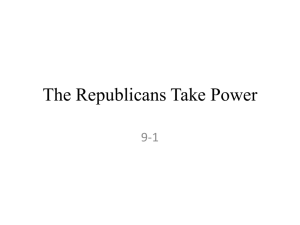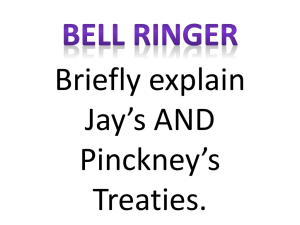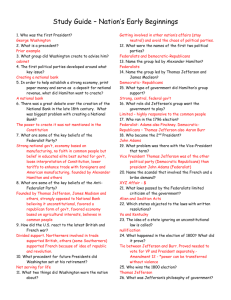TEST ON MONDAY (a day) AND THURSDAY (b day)
advertisement
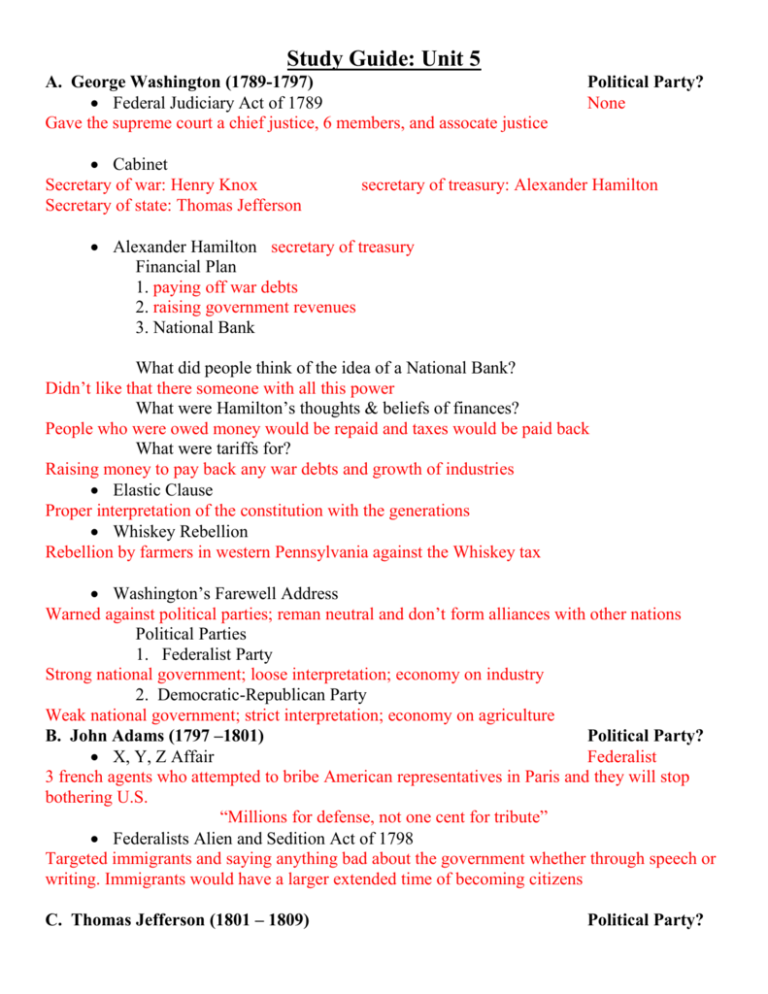
Study Guide: Unit 5 A. George Washington (1789-1797) Federal Judiciary Act of 1789 Gave the supreme court a chief justice, 6 members, and assocate justice Cabinet Secretary of war: Henry Knox Secretary of state: Thomas Jefferson Political Party? None secretary of treasury: Alexander Hamilton Alexander Hamilton secretary of treasury Financial Plan 1. paying off war debts 2. raising government revenues 3. National Bank What did people think of the idea of a National Bank? Didn’t like that there someone with all this power What were Hamilton’s thoughts & beliefs of finances? People who were owed money would be repaid and taxes would be paid back What were tariffs for? Raising money to pay back any war debts and growth of industries Elastic Clause Proper interpretation of the constitution with the generations Whiskey Rebellion Rebellion by farmers in western Pennsylvania against the Whiskey tax Washington’s Farewell Address Warned against political parties; reman neutral and don’t form alliances with other nations Political Parties 1. Federalist Party Strong national government; loose interpretation; economy on industry 2. Democratic-Republican Party Weak national government; strict interpretation; economy on agriculture B. John Adams (1797 –1801) Political Party? X, Y, Z Affair Federalist 3 french agents who attempted to bribe American representatives in Paris and they will stop bothering U.S. “Millions for defense, not one cent for tribute” Federalists Alien and Sedition Act of 1798 Targeted immigrants and saying anything bad about the government whether through speech or writing. Immigrants would have a larger extended time of becoming citizens C. Thomas Jefferson (1801 – 1809) Political Party? What was Jefferson’s philosophy? D.R. Nation to be a simple nation of independent farmers Jefferson’s Advise Stay out of other countries affairs Marbury vs. Madison court case What was the case about and the ruling? Marbury sued for his job given to him by J. Adams. Madison refused to give it to him What came out of this case? Unconstitutional Judicial Review: Supreme court has power to say what is constitutional (Final Say) Judiciary Act of 1801 President Adams appointed as many federalist judges as he could before Jefferson took office. Created all levels of the courts John Marshall Appointed Chief Justice of Supreme Court by John Adams Judicial Review Court has final interpretation Louisiana Purchase of 1803 Purchased from France for $15 million by Thomas Jefferson instead of New Orleans Port only What did the Louisiana Purchase give to the U.S.? Doubled the size of U.S.; encouraged Manifest Destiny Meriwether Lewis and William Clark Expedition What were they hired for? To explore the Louisana territory; to explore the Missouri River and find a water route to go across the continent; good relations with Native Americans; report of plants, animals and soil What did they bring back that was valuable? A wealth of scientific and geographic knowledge Embargo Act of 1807 American ships weren’t allowed to sail to foreign ports. American ports closed to British ships Why was Act placed? Economy drops British attack the Chesapeake D. James Madison (1809 – 1817) Political Party? War of 1812 War between the U.S and British What was the war over? Impressments of sailors Interfere with American shipping British support of Native American resistance Who won the Battle of New Orleans and what did it do? Jackson defeated the British Federalist What did the Treaty if Ghent show? 4 Consequences: 1. foreign affairs to defend itself 2. economy manufacturing 3. frontier defeated British and Natives 4. patriotism/Nationalism grew E. James Monroe (1817-1825) Political Party? American System D.R. 3 Parts 1. establish a protective system 2. establish a national bank 3. transportation system Erie Canal Transport of goods on this man made canal; amazing modification to environment Gibbons vs. Ogden (1824) Case: Interstate commerce case over Hudson river and transports McCulloch vs. Maryland (1819) Case: Federal government case over taxing the bank Monroe Doctrine (1823) Placed over Europen countries entering into North America Missouri Compromise of 1820 Set boundaries for slavery What did the Missouri Compromise help do? gave statehood to Missouri (slave) and Maine (free)


